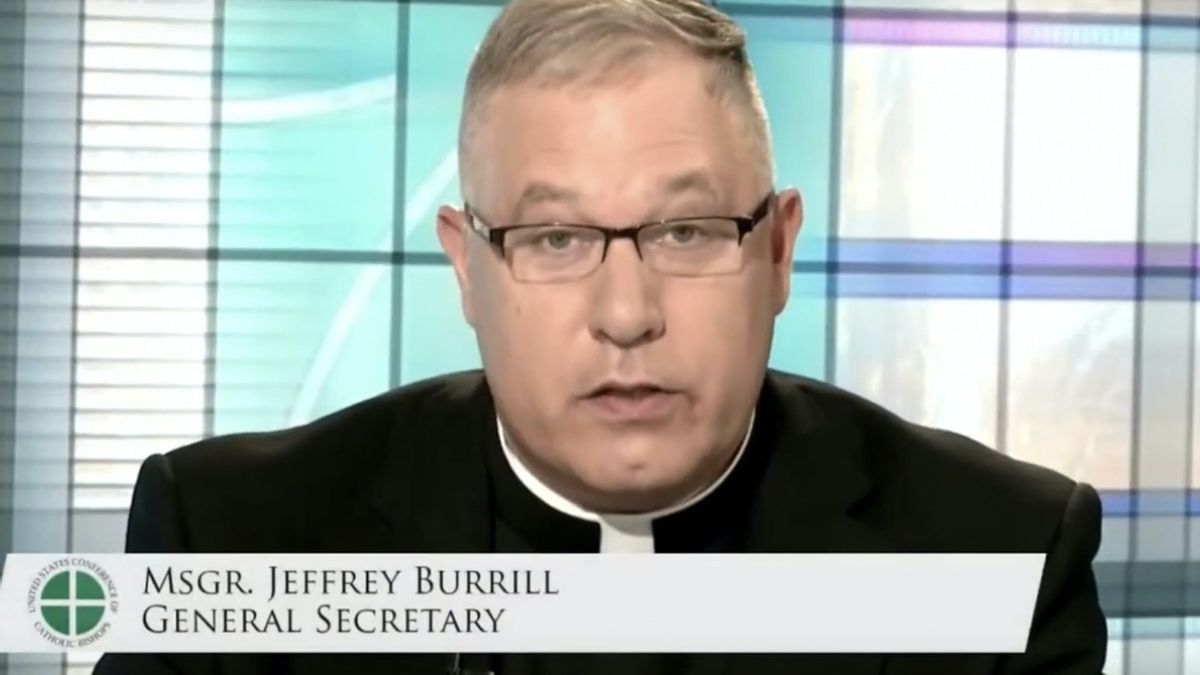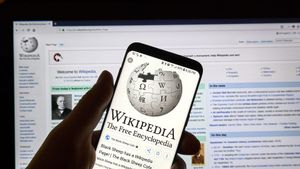JAKARTA - A senior official with the Roman Catholic Church in the US, Monsignor Jeffrey Burrill, has resigned after being accused of using the gay dating app Grindr. The Roman Catholic bulletin, The Pillar, alleges that data it obtained anonymously showed Burrill's visits to gay bars and the use of a location-based dating app.
Father Monsignor Jeffrey Burrill is secretary-general of the US Conference of Catholic Bishops (USCCB). The USCCB said it was taking the allegations seriously. However, they said there were no charges of misconduct with minors.
"To avoid disruption to the conference's ongoing operations and work, Monsignor Burrill has resigned, effective immediately", said a source at USCCB.
One mobile device "correlated" with Monsignor Burrill and Grindr's "transmitted application data signal" demonstrates that. The signal also indicated a visit to a gay bar while Monsignor Burrill was on a USCCB business trip.
BREAKING: Burrill's resignation comes after an analysis of app data signals correlated to his mobile device shows he visited gay bars and private residences while using a location-based hookup app in numerous cities from 2018 to 2020. https://t.co/sN6f2oWjM1
— The Pillar (@PillarCatholic) July 20, 2021
A Grindr representative told BBC News that The Pillar's post was "homophobic and full of baseless innuendo".
"The alleged activity listed in the unrelated blog post is inappropriate from a technical point of view and is highly unlikely to occur", a Grindr source added.
Pilar did not respond directly to questions from the BBC but in a statement posted to Twitter, editor-in-chief, JD Flynn wrote that the newsletter had carefully considered the balance between individual privacy and the public interest and was "confident in our judgment".
SEE ALSO:
The Washington Post, citing expert opinion, said using data in this way is not illegal in the US and "more likely will happen".
Andrés Arrieta of the Electronic Frontier Foundation which campaigns for digital rights told the BBC the data should not have been available. He said the availability of this kind of mobile app data is a symptom "of an industry that places advantage over users' privacy and personal security".
He pointed to a report last year by the Norwegian Consumer Council that was critical of the way Grindr and other apps handle sensitive mobile data.
Father James Martin, who advocates for LGBT inclusion in the Roman Catholic Church, voiced concern on Twitter over what he called "spies".
He also asked if any priests or parishioners could withstand similar scrutiny of their private lives. "Who, in the end, will be left in the Church?", He tweeted.
"As the psalmist wrote, 'If You, O Lord, mark faults, Lord, who can stand it?'".
On Monday, the Catholic News Agency reported in 2018, it had rejected an offer from a party claiming to "have access to technology capable of identifying pastors and others who download popular hook-up apps, such as Grindr and Tinder, and to determine their location, using the internet address of their computer or mobile device".
Apart from the priest's moral gossip, personal data that is spread to the detection of someone's signal is another form, the loss of privacy of modern humans in the era of technology. Right now, it's as if there's no place to hide anymore, as long as you have your phone with you.
The English, Chinese, Japanese, Arabic, and French versions are automatically generated by the AI. So there may still be inaccuracies in translating, please always see Indonesian as our main language. (system supported by DigitalSiber.id)


















